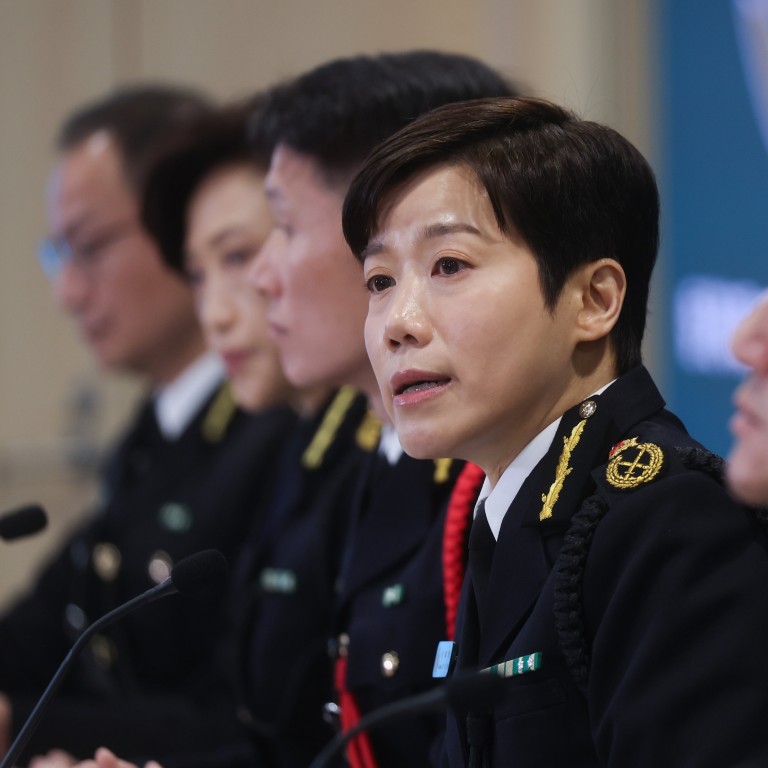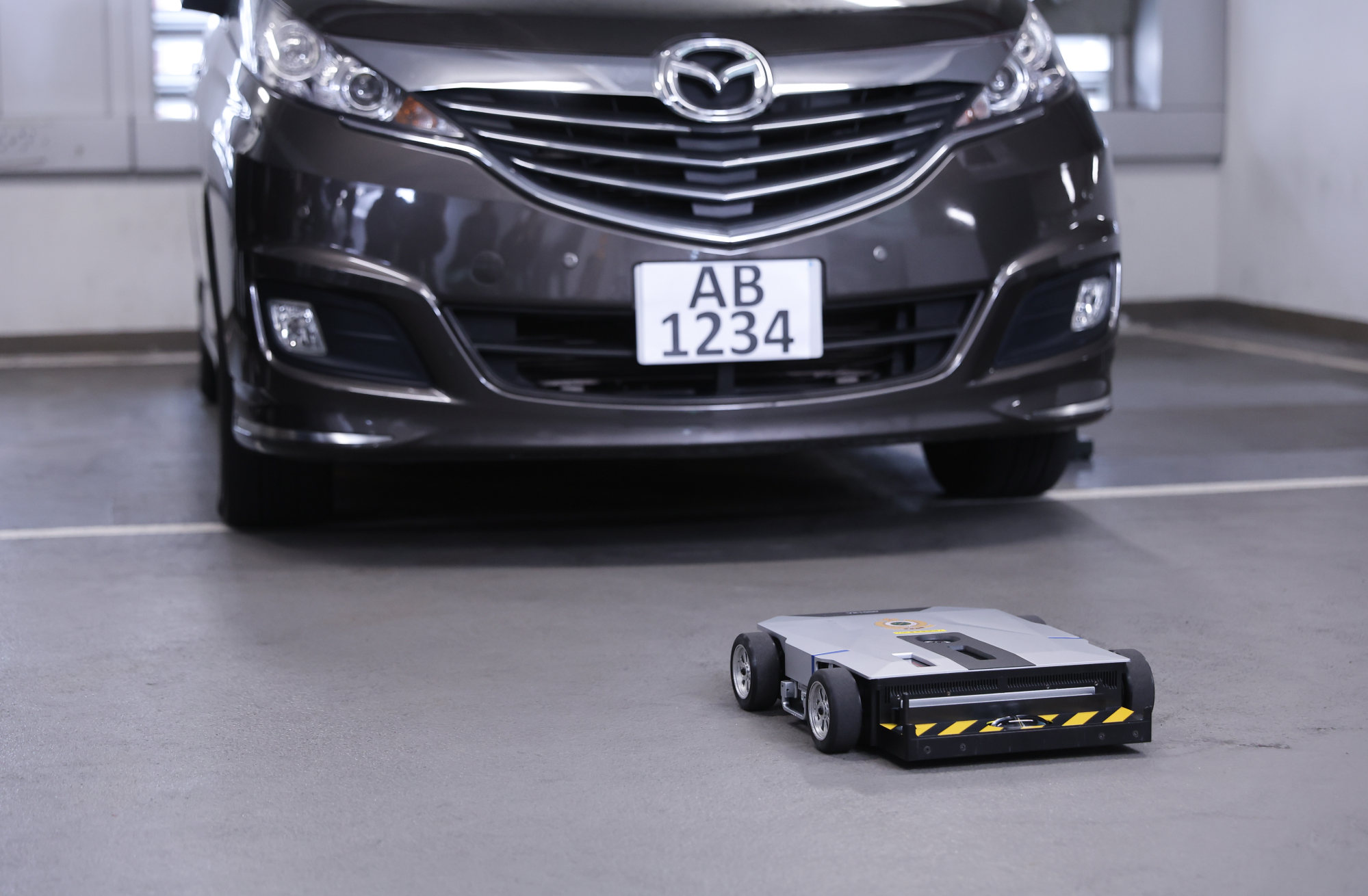
Hong Kong customs providing extra training, revising internal guidelines following domestic national security law enactment
- Commissioner of Customs and Excise Louise Ho says training will give staff an understanding about their duties under Safeguarding National Security Ordinance
- Customs dealt with more cases involving illicit cigarettes, dangerous drugs and intellectual property infringements last year, chief says
Hong Kong customs will provide frontline officers with additional training and revise its internal guidelines following the recent enactment of the domestic national security law, the department’s chief has said.
Commissioner of Customs and Excise Louise Ho Pui-shan said on Wednesday that the training would give staff an understanding about their duties under the Safeguarding National Security Ordinance enacted last week.
“We need to update our internal guidelines on how to perform our duties in this regard,” Ho said during an annual review of customs’ work.
“We will also provide training to our frontline staff so they have a thorough understanding of the new powers provided under the new ordinance.”
Hong Kong customs seizes HK$211 million in smuggled goods on river trade vessels
Ho later told the Post the guidelines were “operational orders regarding the enforcement and statutory powers” under the new legislation mandated under Article 23 of the Basic Law, the city’s mini-constitution, and that the changes would be finalised “as soon as possible”.
The Customs and Excise Department is the second disciplined service to have announced staff training on enforcement of the new law.
A police insider confirmed that some frontline officers had on Monday attended a talk introducing the new law and points to note during enforcement.
The home-grown law lays out 39 offences divided into five categories: treason; insurrection, incitement to mutiny and disaffection, and acts with seditious intention; sabotage; external interference; and theft of state secrets and espionage.
The ordinance complements the national security law Beijing imposed in 2020.
The customs chief also said the department had handled 11,805 interception cases involving illicit cigarettes last year, 2.4 times more than that in 2022. The total value of the cigarettes seized was HK$2.25 billion (US$287.5 million), a 12 per cent rise from HK$2.02 billion in 2022.
Illicit cigarette seizures accounted for 61.7 per cent of the department’s 19,120 law enforcement cases last year.
Ho said cigarette smuggling had surged because of a tobacco tax rise last year, a stepped-up crackdown on passengers carrying more than the permitted tax-free amount, and the full resumption of global logistics and transport chains after the pandemic.
The tobacco tax increase raised the average cost of a pack of 20 cigarettes by HK$16 to more than HK$90.
“But the amount of cigarettes smuggled has decreased, as dealers have sought a piecemeal approach to avoid huge economic loss from customs crackdowns. Therefore, the overall amount of illicit cigarettes intercepted last year has dropped,” Ho said.
Hong Kong customs seizes suspected smuggled goods worth HK$6 million
Last year customs confiscated 652 million sticks of cigarettes, an 11 per cent drop on 732 million in 2022.
The department also dealt with more cases involving dangerous drugs, intellectual property right infringements and consumer rights last year. The number of drug interceptions rose by 46 per cent to 1,362, with the narcotics worth an estimated HK$5.2 billion.
The department also introduced a new robot to carry out under-vehicle inspections for hidden contraband and a smart management system for its seized-goods warehouse.
Cars and trucks passing through checkpoints at the Hong Kong port of the Hong Kong-Zhuhai-Macau Bridge, the Shenzhen Bay port and the Lok Ma Chau control point are now scanned in as little as 30 seconds for hidden contraband with a Smart Under Vehicle Robot.

First introduced late last year, the robot can take photos of a vehicle underside for further analysis with an artificial intelligence system designed to find traces of hidden items. The department bought three robots from a mainland Chinese supplier for HK$460,000 each.
In a bid to increase efficiency and slash costs at the department’s warehouses for evidence, customs has rolled out a Smart Seizure Management System in its Chai Wan facility.
The system is able to locate a piece of evidence in the warehouse and move it automatically. Sensors detect whether the correct object has been removed from its storage rack or from the warehouse to prevent prosecution evidence from being mislocated.
Customs estimates the system will double the efficiency of evidence retrieval to 120 boxes per hour while decreasing the time needed to 30 seconds per box, compared with manually doing it.
The system, costing HK$1.39 million for development and installation, will be rolled out at other customs warehouses this year.

